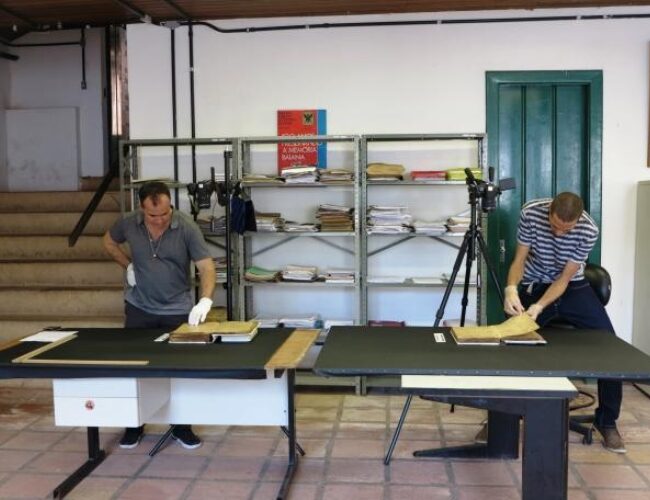The Arquivo Público do Estado da Bahía contains documents crucial for the study of the social and economic history of colonial and post-colonial Bahía. The documents are records of an important part of history which led to the independence of Brazil in 1889 and the abolition of slavery a year later.

The ongoing research at the Arquivo Público do Estado da Bahía has proved the importance of its documents for the study of Bahía´s history and its connections with the Atlantic world, slavery and the slave trade. Bahía was responsible for close to 15% of the transatlantic slave trade to the Americas, a figure only surpassed by Rio de Janeiro. The volumes date between 1664 and 1889, and consist of bills of sale (for plantations, land, houses, ships, slaves, etc.), Wills and testaments, inheritance partition, power of attorney letters, marriage, dowry, labour and business contracts, children’s legitimisation papers, and slave manumission papers.
The archives are situated in an 18th-century building, with no climate control and inappropriate storage. The electricity is not dependable and only a small number of researchers are allowed to consult the material at once.
The project digitised 1,329 volumes of the notary books collection. The project expanded the scope of the project, digitising a larger timeframe than expected (1664-1910), thus covering the first two decades of the Republican, post-emancipation period. The archival staff were trained in digitisation techniques. The archive staff have continued digitising its collection after the end of this project.
